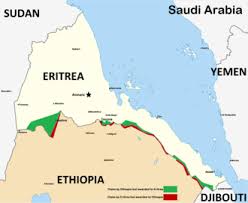Understanding Eritrea: History, Challenges, and Resilience

Introduction
Eritrea, often referred to as the “North Korea of Africa,” holds a significant place in the Horn of Africa due to its strategic location and unique history.
The importance of Eritrea lies in its cultural diversity, rich history, and the ongoing challenges it faces, including political repression, economic difficulties, and border conflicts.
A Brief Historical Overview
Eritrea’s history is marked by colonial rule, beginning with Italian colonisation in the late 19th century, and subsequent warfare for independence, which lasted from 1961 to 1991. After gaining independence from Ethiopia in 1993, Eritrea embarked on a nation-building journey. However, the euphoria of independence was quickly overshadowed by a border conflict with Ethiopia that peaked in the late 1990s.
Current Political Landscape
Today, Eritrea is ruled by President Isaias Afwerki, who has led the country since its independence. The nation is often critiqued for its human rights abuses, including the indefinite national service and lack of political freedoms. The United Nations has highlighted these issues, leading to sanctions and international criticism.
Economic Situation
Eritrea’s economy is relatively underdeveloped, with agriculture being the backbone of the economy. The country has also explored mining and renewable energy resources. However, restrictive government policies and a lack of foreign investment hinder economic growth. Recent efforts have been made to improve infrastructure and engage in regional trade, particularly with countries like Saudi Arabia and the United Arab Emirates.
Significance in the Region
Eritrea’s position in the Horn of Africa makes it a strategic player in regional politics. The current warming of relations with Ethiopia after years of conflict holds significant promise for societal and economic advancement. Eritrea is also part of a complex political landscape involving neighbouring countries like Djibouti and Sudan, making its geopolitical importance even more pronounced.
Conclusion
As Eritrea stands at a crossroads, its resilience amidst historical challenges showcases the strength of its people. Moving forward, the need for reform and engagement in international relations will be critical for progress. The world watches closely, as developments in Eritrea could lead to shifts in regional stability and economic prospects, which are significant for both local and international stakeholders.
